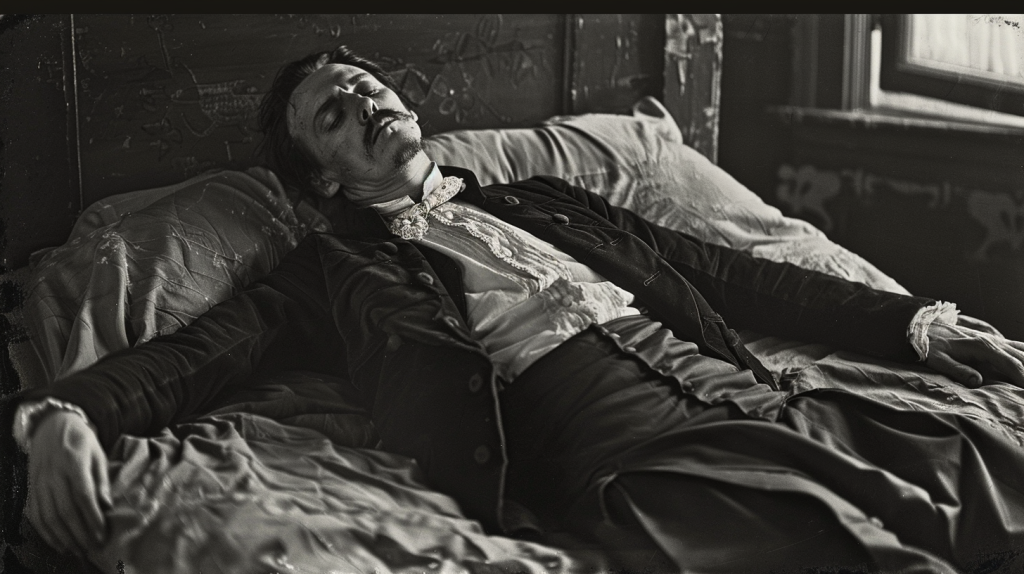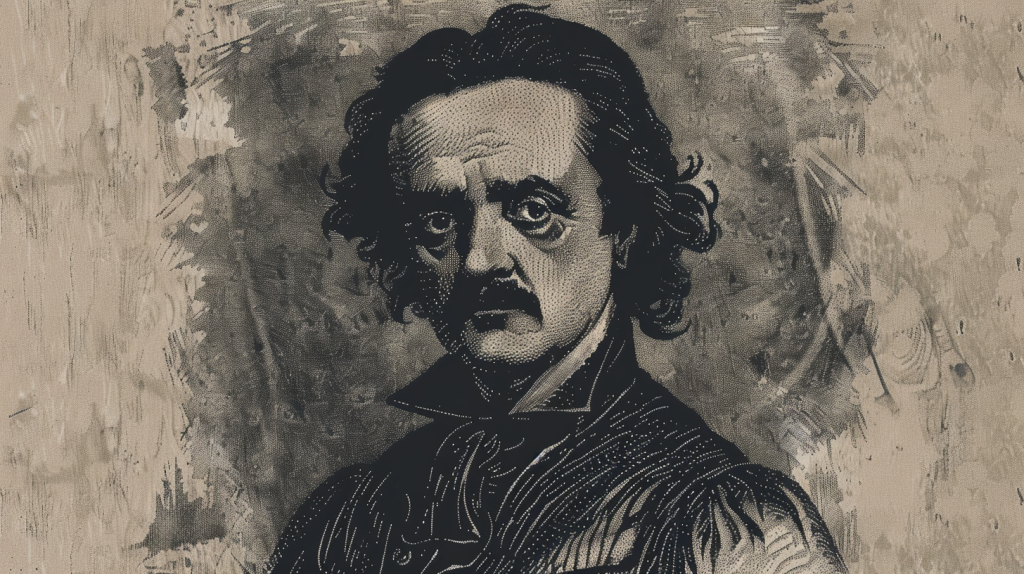Edgar Allan Poe, the master of the macabre, is well-known for his haunting tales and poems. However, there are many aspects of his life and work that remain shrouded in mystery. Explore these little-known facts about the dark side of one of America’s most iconic writers.
Poe’s Death Remains a Mystery

The circumstances surrounding Poe’s death in 1849 are still a matter of speculation. Found delirious on the streets of Baltimore, he was taken to a hospital where he died four days later. The cause of his death has been attributed to various factors, including alcohol, rabies, and even murder (more on that later).
He Married His 13-Year-Old Cousin

In 1836, at the age of 27, Poe married his first cousin, Virginia Clemm, who was only 13 years old at the time. Their marriage lasted 11 years until Virginia’s untimely death from tuberculosis in 1847.
Poe Was Fired from West Point

Despite being a promising cadet, Poe was dismissed from the United States Military Academy at West Point in 1831. His expulsion was due to his intentional neglect of duties and disobedience of orders, which some believe was a deliberate attempt to leave the academy.
He Had a Tumultuous Relationship with His Adoptive Father

Poe’s relationship with his adoptive father, John Allan, was marked by conflict and animosity. Their disagreements over money and Poe’s career choices led to a complete breakdown of their relationship, with Allan eventually disowning Poe.
Poe’s Fascination with Cryptography

Poe had a keen interest in cryptography and even published articles on the subject. He claimed that he could solve any cryptogram and challenged readers to send him coded messages, which he would then decipher and publish in his magazine.
Poe’s Childhood Was Marked by Tragedy

Poe’s life was marked by tragedy from a young age. His father abandoned the family when Poe was an infant, and his mother died of tuberculosis when he was only two years old. Poe was then taken in by the Allan family, but his adoptive mother also died when he was just 20.
He Was a Pioneer of Science Fiction

While Poe is best known for his horror and mystery stories, he also made significant contributions to the genre of science fiction. His story “The Unparalleled Adventure of One Hans Pfaall” is considered one of the earliest examples of space travel in literature.
Poe’s Influence on the Detective Fiction Genre

Poe is often credited with inventing the detective fiction genre with his stories featuring C. Auguste Dupin, a fictional detective who used analytical reasoning to solve crimes. These stories, including “The Murders in the Rue Morgue,” laid the foundation for future detective novels.
Poe’s Mysterious Visitor: The Poe Toaster

For over 70 years, a mysterious figure known as the “Poe Toaster” visited Poe’s grave in Baltimore on his birthday, leaving behind three roses and a bottle of cognac. The identity of the Poe Toaster remains unknown, and the tradition ended in 2009.
He Had a Strained Relationship with His Literary Contemporaries

Poe’s relationships with other writers of his time were often strained and marked by rivalry and criticism. He had public disagreements with writers such as Rufus Wilmot Griswold and Nathaniel Parker Willis, which sometimes turned into bitter feuds.
Poe’s Favorite Pets Were Cats

Despite the dark themes in his writing, Poe had a soft spot for cats. He owned several throughout his life and even wrote an essay titled “The Black Cat,” which explores the superstitions surrounding these feline companions.
Poe’s Death May Have Been Related to Election Fraud

One theory surrounding Poe’s mysterious death suggests that he fell victim to “cooping,” a form of electoral fraud in which individuals were kidnapped, drugged, and forced to vote for a particular candidate. Poe was found on election day in a state of delirium, lending credence to this theory.
Poe’s Grave Went Unmarked for 26 Years

Following his death in 1849, Poe was buried in an unmarked grave in Baltimore. It wasn’t until 1875 that a proper monument was erected in his memory, funded by donations from admirers of his work.
His Final Words Remain a Mystery

Poe’s final words, spoken on his deathbed, have been the subject of much speculation. According to some accounts, he repeatedly called out the name “Reynolds” before passing away, though the identity of this person remains unknown.
Poe’s Influence on Popular Culture

Poe’s influence extends far beyond the literary world. His work has inspired countless adaptations in film, television, music, and even video games. From the classic horror film “The Raven” (1935) to the modern-day TV series “The Following,” Poe’s dark tales continue to captivate audiences across various media.
He Was a Critic and Editor

In addition to his work as a writer, Poe was also a prominent literary critic and editor. He worked for several magazines throughout his career, including the Southern Literary Messenger and Graham’s Magazine, where he gained a reputation for his sharp wit and often scathing reviews.
Poe’s Tragic Love Life

Poe’s love life was marked by tragedy and heartbreak. After the death of his wife Virginia, Poe became involved with several women, including the poet Sarah Helen Whitman and his childhood sweetheart Sarah Elmira Royster. However, none of these relationships lasted, and Poe remained a lonely figure until his death.
He Struggled with Alcoholism

Throughout his life, Poe struggled with alcoholism, which had a significant impact on his health and career. His drinking habits were often a source of concern for his friends and family, and some believe that alcohol may have played a role in his untimely death.
Poe’s Legacy Lives On

Despite his relatively short life and troubled personal history, Edgar Allan Poe’s legacy has endured for more than 170 years after his death. His contributions to literature, particularly in the genres of horror, mystery, and science fiction, have secured his place as one of the most influential and enduring writers in American history. As readers continue to discover and rediscover his work, the dark side of Edgar Allan Poe remains a source of fascination and inspiration for generations to come.
Ellen has been obsessed with logic puzzles, jigsaws, and cryptograms since she was a kid. After learning she was taught how to play chess wrong by a family friend (so they could win), she joined her school chess club and the rest is history.

